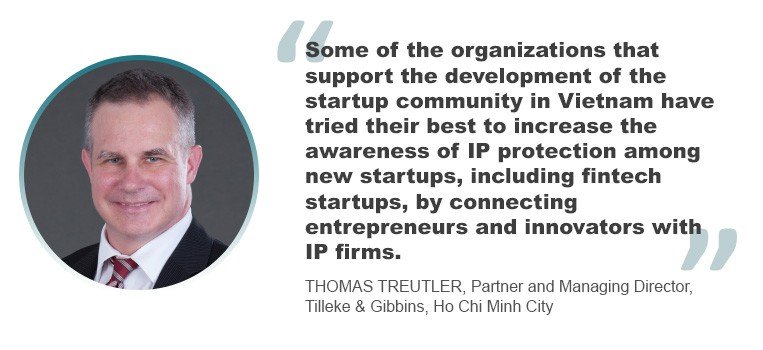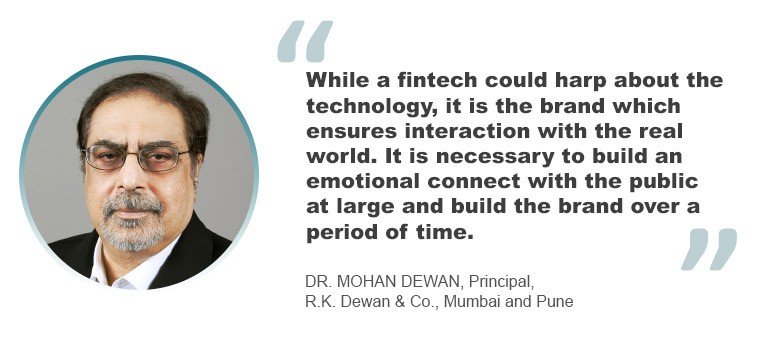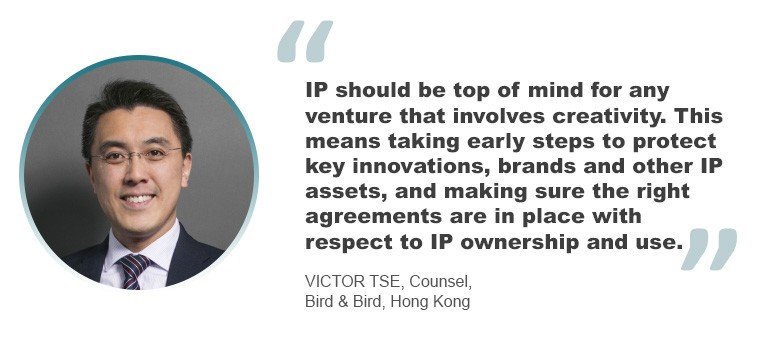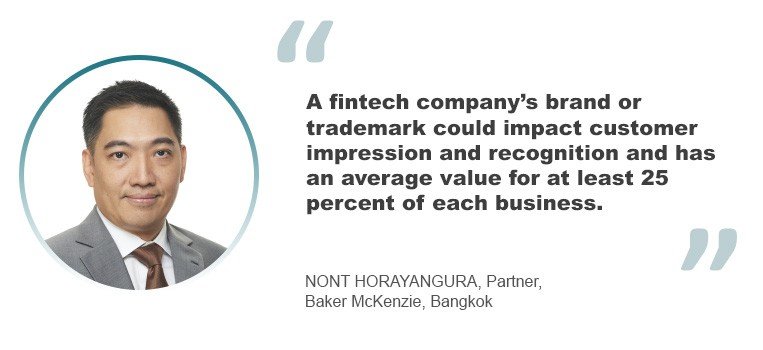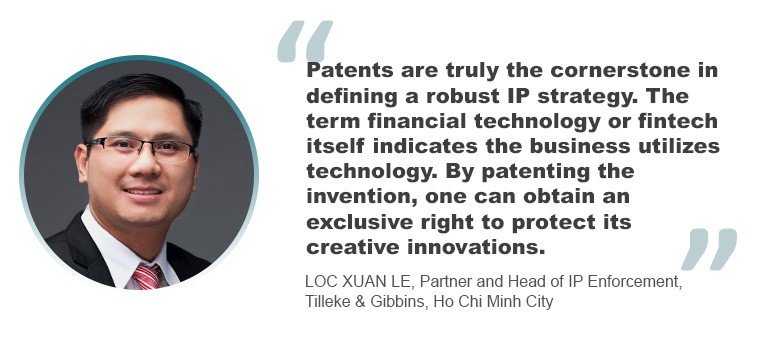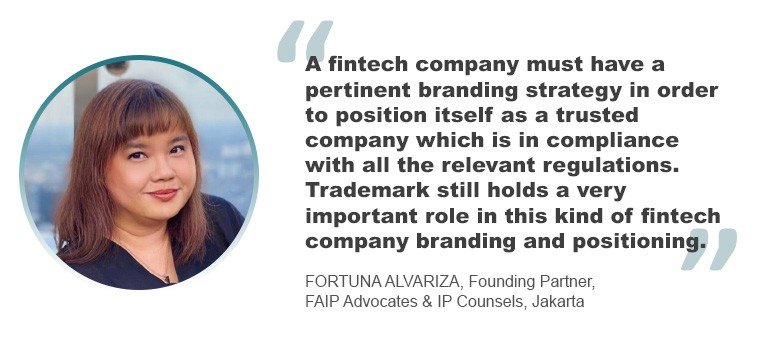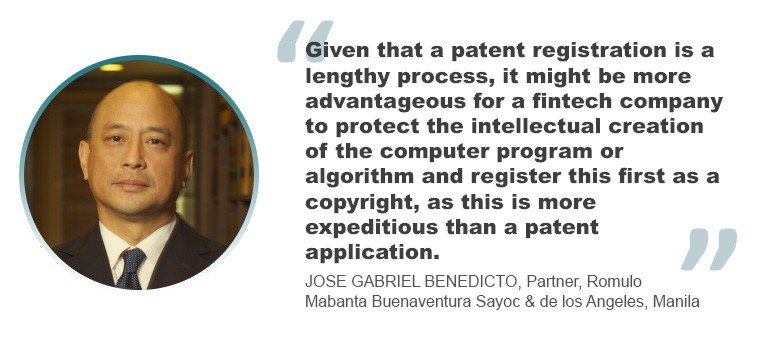Fintech has exploded on the world financial scene, pushed to the forefront by the lockdowns of Covid-19. Asia IP examines the IP challenges facing these companies in Asia – and shares how branding can make or break a fintech.
The onset of the global pandemic in 2020 has caused an explosion of fintech products and services. With Covid-19 forcing people across the world to stay home much of the time, fintech has indeed come in handy.
So now, even with the pandemic still upon us, people are conveniently served with a buffet of handy fintech tools, whether e-payments, fund transfers, insurance, lending, personal financial management, alternative assets such as cryptocurrencies and others.
Fintech thrives in Asia, where some of the world’s leading fintech companies are found. These include Grab from Singapore, Ant Group from China, GoJek from Indonesia and Paytm from India.
Not only is India the world’s third-largest fintech market, it is the fastest growing as well, with Bengaluru and Mumbai as the country’s major fintech hubs. Open banking, neobanking, aggregators and digital first insurtechs are among the newest segments for digital payment in India.
In 2020, the number of patent applications in India in the sub-classes of G06Q relating to fintech rose to 617, up from 462 in 2018 and 453 in 2019. Among these were patent applications for blockchain partial ledgers, system and method for controlling digital assets, escrow personalization system and audible machine-readable code.
Hong Kong is another fintech hub in the region. Patent filings under Class G06Q also increased in 2020, totaling 1,792 as compared to 917 in 2018 and 942 in 2019. This number includes the 91 standard patent applications filed in 2020 under the original grant patent system, a new type of standard patent application set in place in Hong Kong in December 2019.
Others cities posting strong fintech activity in Asia include Beijing, Shanghai, Shenzhen, Jakarta, Manila and Singapore, the frontrunner in Southeast Asia.
Meanwhile, Bangkok, Ho Chi Minh City and Hanoi are emerging fintech centres. “There has been an increase in patent filings in Vietnam from fintech companies,” said Thomas J. Treutler, partner and managing director at Tilleke & Gibbins in Ho Chi Minh City. “Our firm has seen an increase in this area.”
So what is the ideal IP strategy for fintech companies?
“IP should be top of mind for any venture that involves creativity. This means taking early steps to protect key innovations, brands and other IP assets, and making sure the right agreements are in place with respect to IP ownership and use,” said Victor Tse, counsel at Bird & Bird in Hong Kong.
“When it comes to the software-based industry, like fintech companies, patents are truly the cornerstone in defining a robust IP strategy. The term financial technology or fintech itself indicates the business utilizes technology, highly intelligent software and/or method as its competitive edge. By patenting the invention, one can obtain an exclusive right to protect its creative innovations. This will increase the value of its product and its company, especially in the digital platform,” said Le Xuan Loc, partner and head of IP enforcement at Tilleke & Gibbins in Ho Chi Minh City.
Thus, a patent application should be filed as early as possible and the applicant should not disclose the invention prior to filing, Tse added.
However, registering a patent may not be as easy as it sounds.
“Given that a patent registration is a lengthy process, it might be more advantageous for a fintech company to protect the intellectual creation of the computer program or algorithm and register this first as a copyright, as this is more expeditious than a patent application,” said Jose Gabriel R. Benedicto, a partner at Romulo Mabanta Buenaventura Sayoc & de los Angeles in Manila.
Mohaan R Dewan, principal at R.K. Dewan & Co. in Mumbai and Pune, agrees with Benedicto.
“In case the key element of a fintech solution is only a computer program or an algorithm, it may be difficult to obtain a patent for the same unless the applicant proves that the computer program involves a technical effect or the solution is provided with a combination of software and the hardware,” said Dewan.
The software produces a technical effect if the fintech’s subject matter provides a solution to an existing financial problem. If the subject matter is novel and inventive, filing a patent may be a good strategy as long as the subject matter does not fall in exclusion under India’s Patents Act, 1970, Dewan said.
The patent filed should also have a priority date which may be sometime during the conception phase. This provides the patent applicant with the first mover advantage.
Aside from preventing potential infringers from creating, selling, using or importing the patented product or process, a patent also allows the patent holder to go for licensing or commercialization. Plus, it will be a plus factor for an investor needing convincing about the novelty and inventiveness of a fintech’s subject matter.
Otherwise, if patenting does provide some challenges, Dewan recommends the applicant to take another route, such as applying for a copyright. However, that, too, presents a problem.
“It suffers from the disadvantage of a competitor developing a code independently based on reverse engineering of the copyrighted disclosure,” explained Dewan. “Thus, the copyrighted disclosure may not really be protected.”
Nevertheless, fintech may also benefit from design patents which protect its physical attributes such as electronic cards, machines and interfaces; and trade secret protection for its subject matter.
“It needs to be ensured that adequate steps are taken to ensure confidentiality of the processes like backend server processes or codes. That protection could be ensured for an unlimited period of time as long as it is kept secret and has commercial value,” Dewan added.
Of course, branding is part of this strategy as well, especially if there are other fintech firms offering the same products and services. Through effective branding, a company distinguishes itself from the competition, builds up credibility, enhances its value among customers, strengthens customer loyalty, and attracts more investment and partnership opportunities, among others.
“[A fintech company’s] brand or trademark could impact customer impression and recognition and has an average value for at least 25 percent of each business,” said Nont Horayangura, a partner at Baker McKenzie in Bangkok.
“There are two faces to a fintech company. One is the technology and the second is the necessity of brand identity for building relationships,” said Dewan. “While a fintech could harp about the technology, it is the brand which ensures interaction with the real world. In the real world, technology leaders in fintech change quickly and therefore, it is the brand that can be a saviour. It is necessary to build an emotional connect with the public at large and build the brand over a period of time.”
In Indonesia, fintech is still a new business which often continues to deal with issues regarding trust and legality.
“A fintech business must at least be in compliance with several regulations issued by the Bank of Indonesia, mainly on digital financial services, electronic money and payment transactional services. A fintech company must therefore have a pertinent branding strategy in order to position itself as a trusted company which is in compliance with all the relevant regulations,” said Fortuna Alvariza, a founding partner of FAIP Advocates & IP Counsels in Jakarta. “Trademark still holds a very important role in this kind of fintech company branding and positioning.”
Where fintech startups are concerned, a strong IP strategy is especially important when looking for funding, the current trend being that IP are assets with value and capable of being used as security or collateral for loans.
“A fintech startup needs funding on a large-scale and therefore, it is important to solicit investors for the funding. In turn, the investors need to have the confidence that if they invest in a fintech startup, there is an assurance of returns and that they could sell their stake when they think the time is right,” said Dewan. “A strong IP portfolio of a startup is a very strong motivator that could nudge an investor for funding with minimal marketing effort by the start-up. The investor would be convinced of the novelty and inventiveness of the subject matter of the fintech and therefore, would see value in investing in it.”
Also, investors usually look for sustainability in a startup. “A fintech startup that regularly creates innovation in running its business will be seen as more long-lasting because it will be considered as more dynamic and adaptable towards the development of fintech business and technology which has an impact in its competitiveness with other fintech companies,” said Alvariza. “A fintech startup with an IP portfolio is seen as more valuable in the eye of investors.”
So the fintech landscape is flourishing in many parts of Asia and the world. But, is awareness of the need for IP protection among fintech entrepreneurs and innovators catching up with this bustle of activity?
Yes and no. The level of awareness differs between jurisdictions and between fintech firms.
“In general, large fintech companies are aware of IP and the necessity of its protection but the same cannot be said of small companies and start-ups,” said Dewan. “In case of a small company or a startup, we have noticed that there is a sense of urgency for rushing into the market and secondly since they need investors, they make disclosures of their ideas to the prospective investors. However, adequate protection with respect to protecting the IP is not taken before plunging into the market or making disclosure to a prospective investor.”
The tendency for a startup to rush into the market to gain an advantage is understandable. But, IP protection is another side of the coin. If they are rushing to enter the market without adequate protection of their IP, that would spell disaster. The subject matter is open to replication without any compensation. Also, fintech companies must sign a non-disclosure agreement with a prospective investor. An NDA will avert the possibility of the investor going ahead with the idea independently if no agreement was signed between the parties.
“My experience is that these geniuses are just so imaginative, creative and excitable that they do not realize they have to protect the creation because there are many unscrupulous people who will take credit or steal it from them,” said Benedicto. “Given that there has been a new normal for conducting commercial transactions and banking processes, perhaps [patent filing] should now be strongly considered by the fintech startups.”
Fortunately, the climate of IP awareness is brighter in other jurisdictions, including Indonesia, home to four unicorns and one decacorn, as well as Thailand. Though it has increased significantly over the past few years in Thailand, Horayangura admits the level of awareness in the country is still not enough.
Awareness is also high in Hong Kong. “Most fintech entrepreneurs and innovators in Hong Kong are IP savvy, although with constant developments in IP law in different jurisdictions, entrepreneurs and innovators should always speak to an experienced attorney to understand how to best protect and use their IP in ways that maximize their advantage,” said Tse.
“In our view, there is a moderate awareness of protecting IP assets among fintech entrepreneurs and innovators in Vietnam,” said Treutler. “To the best of our knowledge, some of the organizations that support the development of the startup community in Vietnam have tried their best to increase the awareness of IP protection among new startups, including fintech startups in Vietnam, by connecting such entrepreneurs and innovators with IP firms in Vietnam.”
Espie Angelica A. de Leon



